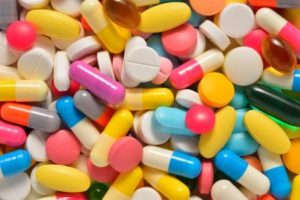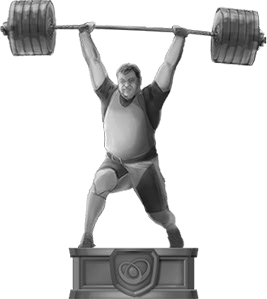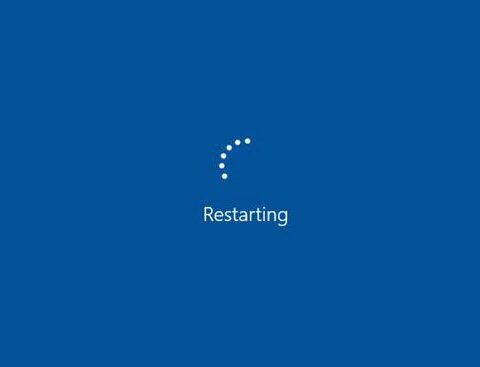Welcome to medication nation:
Tampa (AFP) – One third of Americans are taking prescription and over-the-counter drugs, such as birth control pills, antacids and common heart medications, that may raise the risk of depression, researchers warned on Tuesday.
Since the drugs are so common, people may be unaware of their potential depressive effects, said the report in the Journal of the American Medical Association (JAMA).
“Many may be surprised to learn that their medications, despite having nothing to do with mood or anxiety or any other condition normally associated with depression, can increase their risk of experiencing depressive symptoms, and may lead to a depression diagnosis,” said lead author Dima Qato, assistant professor of pharmacy systems, outcomes and policy at the University of Illinois at Chicago.
Of course, a depression diagnosis then leads to more medication, which often leads to more medication to deal with the side effects* of the first medication, which is itself dealing with the side effects of an antacid. It’s estimated that one in four American women in their 40s and 50s are on antidepressants. That is an astounding number.

But it’s not just antidepressants. It’s estimated that 70 percent of Americans take a prescription medication every day, while the elderly take five or more. Open a magazine or watch TV commercials and you’ll hear about more medicines than you knew existed and why you need them. But it’s just marketing**. We don’t need most of them, what we need is to be a healthier people.
If your doctor says you need a medicine, listen. Get the best medical advice you can. But don’t be afraid to ask if there’s a better way to deal with your health issues. Your doctor will likely say, “Well, if you dropped 40 pounds, your high blood pressure would probably normalize.” Or he’ll say, “If you did x-and-such, you might not need this cholesterol medicine.”
It’s easy to take another pill. It’s far harder and yet much better to change the habits that are giving you health problems. I challenge you to establish new habits in their place.
Habit 1: lose the weight. Americans are the fattest people who have ever lived. Most of us are overweight and millions of us are obese to super morbidly obese***. Obesity correlates to higher levels of heart disease, stroke, and diabetes, i.e. many of the most common ailments for which Americans take medications in the first place.
Make it your goal to lose a pound a week. One pound of fat is roughly 3500 calories, which works out to a little more than a donut a day. One pound a week also works out to losing 50 pounds in a year. And 50 pounds will go a very long way to reducing your need for medications.
Habit 2: eat better food. Have you ever really read that list of ingredients on the back of your food container? It’s astonishing the number of chemicals, sugars, and acids that are added to the actual food you expect. Compare the ingredients list of your favorite frozen chicken pot pie to a recipe for homemade chicken pot pie. Which do you think your body will prefer? Making your food from scratch is good. Growing as much of your own food as you can is even better.
Consciously eating better food instead of merely counting calories, points, or portions will go a long way toward establishing Habit 1. It will also go a long way toward your body developing fewer conditions that demand medication.
Habit 3: exercise. You know you should. Turn off the TV and go do something, anything. Watching that screen for three hours a night is not just killing your body, it’s killing your soul as well.
Habit 4: deal with it yourself. You probably need medicines for serious ailments. Like I said, listen to your doctor. But there are plenty of minor ailments that you could buy medicines for but don’t need to. Some antacids can lead to clinical depression. A tablespoon of baking soda mixed into a glass of water will not. But it will fix your heartburn, assuming you still have heartburn after eliminating the bad food that causes it in the first place.
Men, we have two choices. We can consciously live healthier lives, or we can unconsciously get sucked into an expanding vortex of drugs and side effects and drugs for those side effects.
Let me challenge you to be below average for once: make an effort to take fewer medications than your peers. You’ll probably live a longer and happier life.
* Including Celexa, which side effects can include drowsiness, ejaculatory disorder, nausea, insomnia, diaphoresis, suicidal tendencies, agitation, diarrhea, impotence, sinusitis, anxiety, confusion, exacerbation of depression, lack of concentration, tremor, vomiting, anorexia, xerostomia, agitation, blurred vision, confusion, fever, increase in the frequency of urination or amount of urine produced, lack of emotion, loss of memory, menstrual changes, skin rash or itching, trouble breathing, behavior change similar to drunkenness, bleeding gums, breast tenderness or enlargement or unusual secretion of milk (in females), chills, convulsions, diarrhea, difficulty with concentrating, dizziness, fainting, drowsiness, increased hunger, increased thirst, irregular heartbeat, lack of energy, lethargy, nosebleed, overactive reflexes, painful urination, poor coordination, purple or red spots on the skin, rapid weight gain, red or irritated eyes, redness, tenderness, itching, burning, or peeling of the skin, shivering, slow or irregular heartbeat, sore throat, stupor, sweating, swelling of the face, ankles, or hands, talking or acting with excitement you cannot control, trembling, shaking, or twitching, trouble with holding or releasing urine, unusual or sudden body or facial movements or postures, and unusual tiredness or weakness. There are more.
** Ask yourself why they encourage you to ask your doctor about a specific medication, rather than listening to your doctor’s advice about a specific ailment.
*** Americans are so fat we have to keep inventing new categories in which to store our fatness.










CS Lewis on Equality noted that medicine is not food, it is an exception handler. So I agree with most of what was written.
See dietdoctor.com for detailed advice and even recipies, but if you want to lose weight, you need a ketogenic diet. You will feel bad for about two weeks as the remaining sugar in your system burns out and you will need more salt and water. But when you burn your own fat, you can easily lose 5 pounds a week and NOT be hungry – as long as you don’t eat any sugar or starches (under 20g/day initially, under 50 maybe later).
Also see also Gary Taubes videos and books like good calories bad calories.
Yes, real food, but the chicken pot pie has starchy vegetables, bread – grains, and even starch in the gravy. And omelet with cheese and meat and green veggies would be better. You can carb-load on fresh baked bread, organic pasta, and oranges (juice is a problem because you don’t get any roughage but get the sugar from the equivalent of a dozen oranges).
Its not just how much or how many calories, but where those calories come from.
You can get hamburgers without the bun – add the cheese and real veggies, but no ketchup.
Eggs are great, as is Cottage Cheese, and many cheeses are zero carb. Olives and Avacados are good as well as all the green leafy stuff.
No potatos, carrots, grains (corn) or other starchy vegetables. Except for tart berries – blue, rasp, straw, no fruits either. Except for the ultralights (miller 64, bud 55, maybe Michelob Ultra), avoid beer, but you can have dry wine, but in moderation.
I would also agree “real food” is better – I get farm fresh eggs, (raw milk!) and locally grown vegetbles and even meat, but watch out for “organic” labeled food from the big grocery stores – not is all what it seems. Are the chickens the eggs come from clearing the pasture of bugs with only a little grain feed, or are they in a factory style “free range”?
Also don’t avoid fat – eat it when you are hungry or have a craving, don’t overdo the protein, e.g. eggs with the yolks, not-lean meat. Eating fat releases leptin which is a satiety hormone which kills your appetite. Also when you don’t eat carbs, you won’t have the insulin shocks (eat starch or sugar, you get a blood sugar high, your pancreas releases insulin, your blood sugar drops with the glucose being turned into fat and stored so you are getting fatter and starving inside). Also if you eat too much protein, you can cause ketoacidosis (different from ketosis), and any excess protein is turned to glucose in your liver, so past some point, eating more protein becomes just like eating sugar.
I think the carb craving was a survival mechanism from way back when we couldn’t have food year round, and couldn’t preserve it. So we’d gorge ourselves at harvest time, gain lots of weight, but lose it over the winter (like bears gorge themselves before hibernation). The problem is now every month is the harvest.
From DietDoctor.com, exercise doesn’t seem to make much difference – there are zero-carb athletes though. At least it doesn’t counter the effects of carbs in the diet. There is also intermittent fasting – e.g. only eat dinner – and that seems to amplify the effects of ketosis especially when you get to where you aren’t hungry during the day.
5
PHARMAKIA. I trust weed more than the PHDs these days…
4.5
Carbs are a tough addiction to break. And it was seriously an addiction for me. Took me probably over two weeks of total suck to overcome.
I still crave carbs, but my body doesn’t need them the way it used to. I don’t get hunger pangs or energy level swings either.